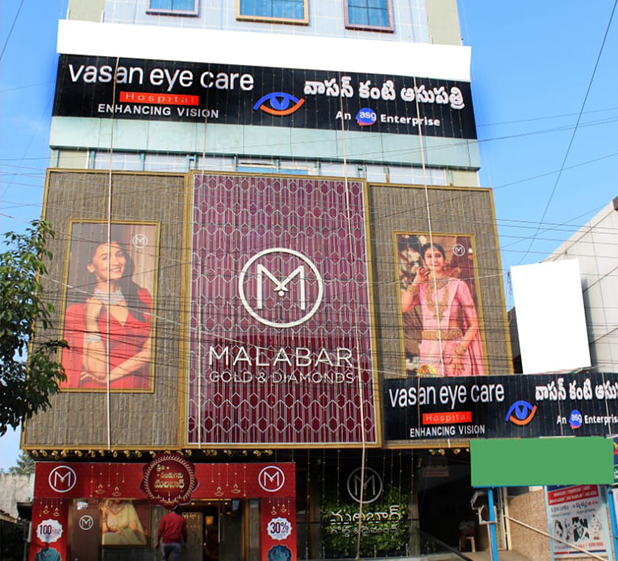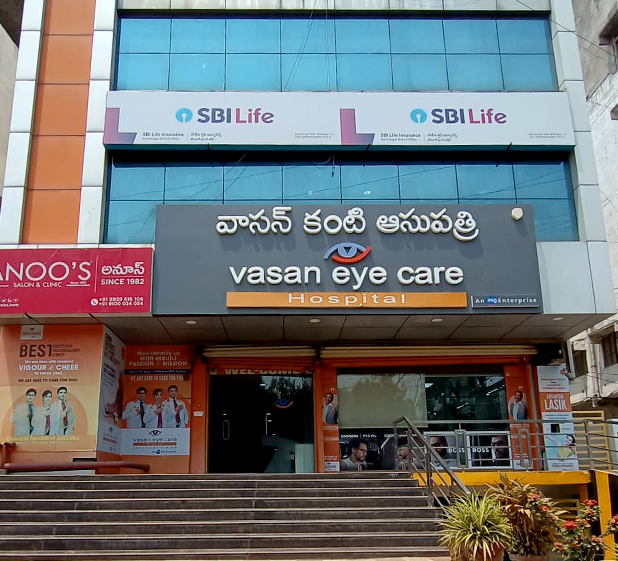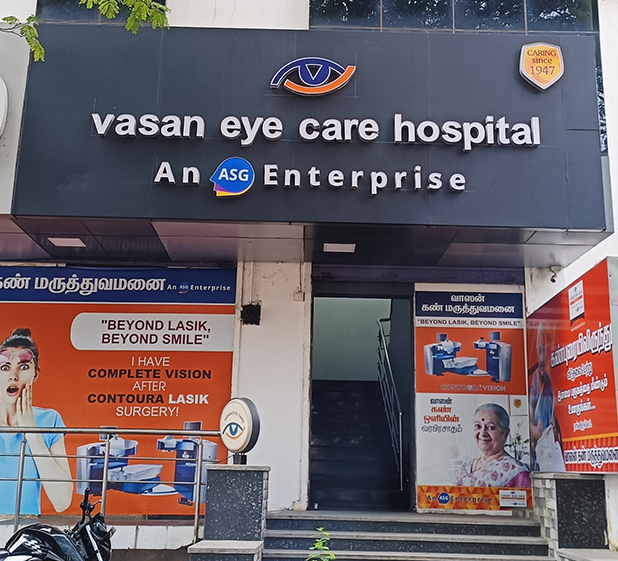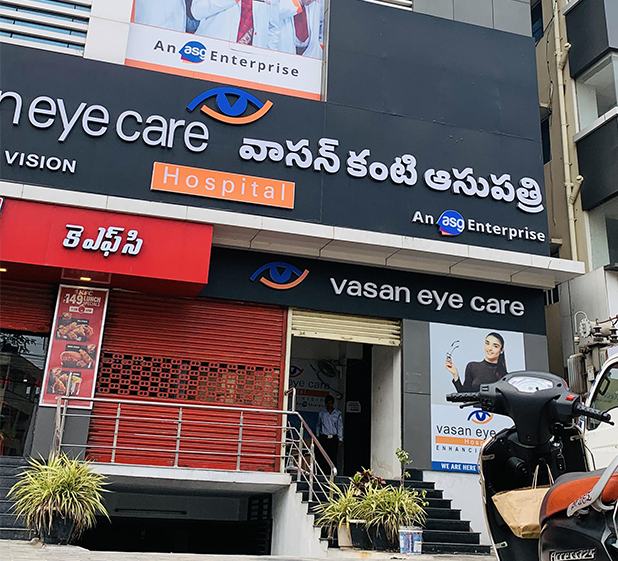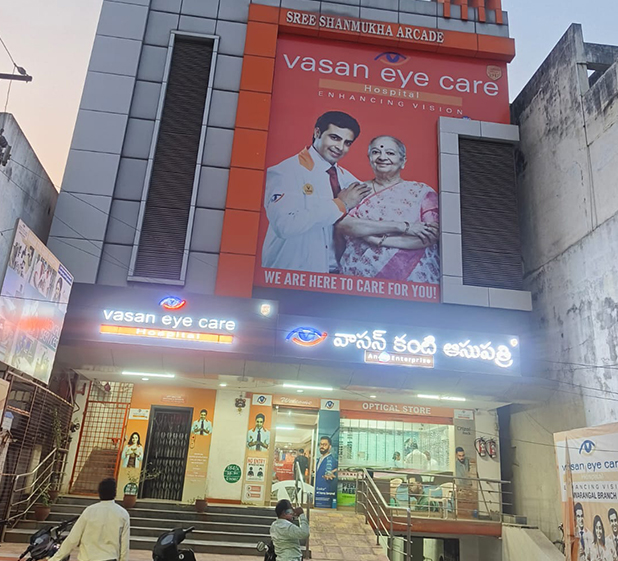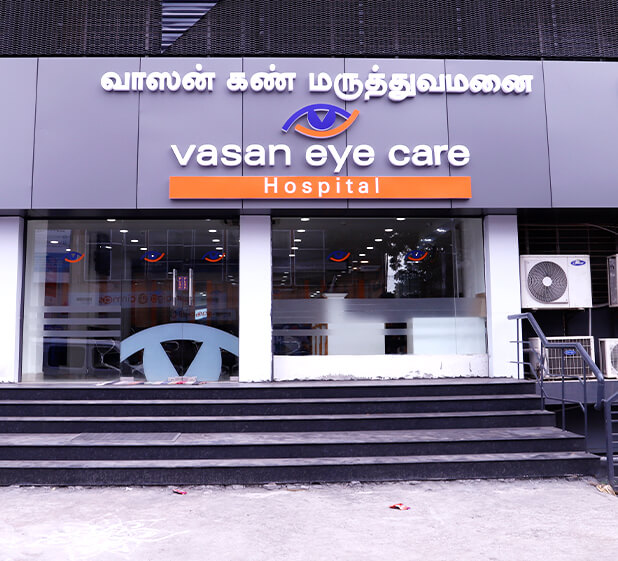
Glaucoma
What is Glaucoma?
Glaucoma is a group of eye conditions that affect the optic nerve after elevated eye pressure which may cause blindness.
Glaucoma happens to be one of those rare diseases that has no cure yet. However, with consistent care and regular treatments and surgical intervention, it could be kept in control.
Symptoms
Symptoms to look out for
Glaucoma symptoms often go unnoticed in the early stages, that’s why it’s called the ‘Silent thief of sight’. Here are signs you should not ignore:


Peripheral vision loss
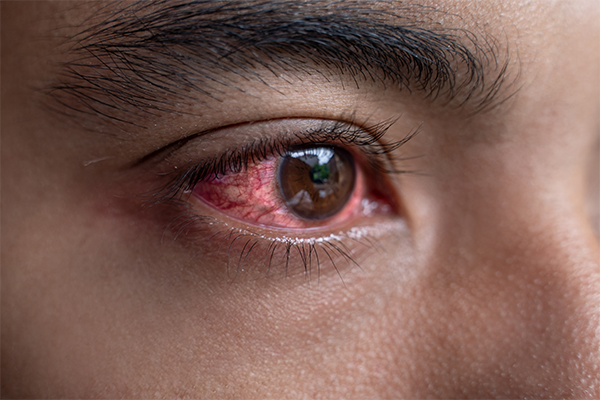
Redness of the eyes

Severe eye & forehead pain

Halos around lights

Blind spots in the field of vision
Risk Factors
Who is at risk of getting Glaucoma
Treatments Available
Here’s how our experts treat it
There are several stages of Glaucoma, and treatment depends upon the severity of the disease. At Vasan, we have advanced solutions for each stage and choose the best for you.
Eye Drops
Glaucoma eye drops lower the amount of fluid production in the eye or helping fluid to exit the eye, or both. Sometimes life time eye drops are needed.
Oral Medications
Oral medication helps protect the person’s eyesight in emergency conditions. They reduce the volume of fluid that the eye produces, rapidly lowering the pressure.
Glaucoma Valve
Glaucoma valve or 'Shunt' is an effective surgical technique to reduce intraocular pressure (IOP) in patients affected with Glaucoma.
Drainage Tubes
The drainage tube is a specialised device that allows fluid from inside the eye to bypass the eye’s drainage pathway to lower eye pressure.
FAQs
No, but treatments can stabilise the vision and save sight. Early diagnosis preserves more vision. The main treatments include eye drops and sometimes pills. Eye drops fall into different categories, all aimed at reducing fluid production or improving its flow out of the eye.
Glaucoma, a progressive eye condition, results from optic nerve damage, often due to increased eye pressure from fluid buildup, which impairs vision. Intraocular pressure is the only modifiable factor that controls glaucoma progression.
If you have glaucoma, it can lead to vision loss and even blindness by damaging the optic nerve at the back of your eye.
Laser surgery helps manage Glaucoma symptoms and reduces glaucoma progression. Various laser surgeries aid fluid drainage or reduce fluid production, maintaining normal eye pressure and lowering the risk of optic nerve damage.
Normal eye pressure isn’t a specific number; it varies. While the average is around 14-16, the normal range is broader from 8-18. Roughly 90% of people fall between 10 and 21. Eye pressure varies among individuals. It’s best to consult your doctor to determine your ideal pressure.
If your blood pressure increases, your eye pressure might immediately rise. However, your eye quickly compensates and returns to its usual level. Yet, prolonged high blood pressure could reduce circulation to your eye which could be harmful during Glaucoma treatment.
Common side effects of Glaucoma eye drops include eye discomfort, pain, redness, tears, blurriness, and dry eyes. In rare cases, there may be changes in eye colour, eyelash growth, systemic side effects, or allergic reactions.
Other Diseases
Know more about other Eye Diseases
Congenital Glaucoma
Congenital Glaucoma is a rare genetic eye condition that affects children at birth causing abnormally high eye pressure.

